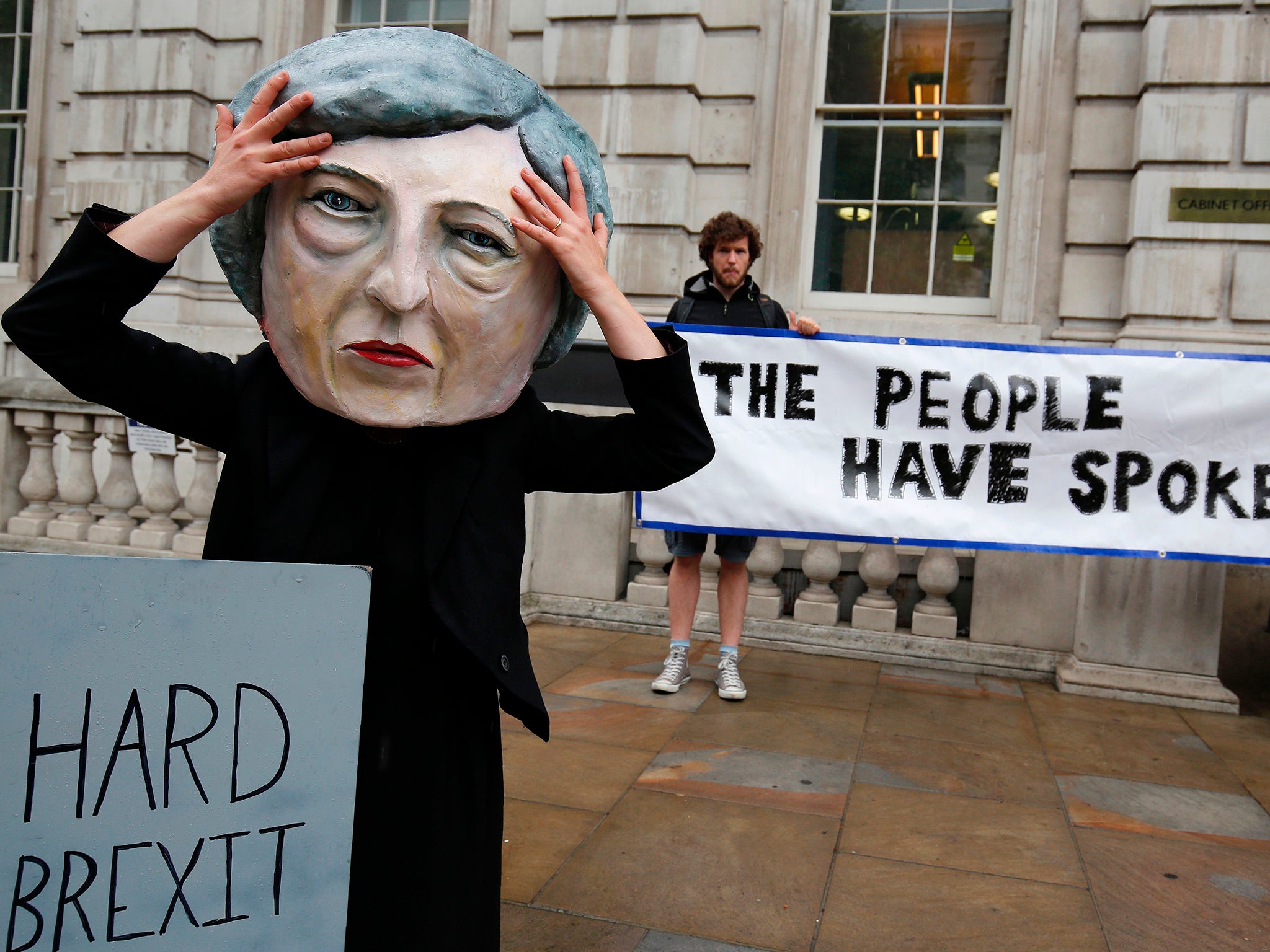What is soft Brexit? How could it work as UK negotiates leaving the EU?
After losing her parliamentary majority, Theresa May could have to change her stance

Your support helps us to tell the story
From reproductive rights to climate change to Big Tech, The Independent is on the ground when the story is developing. Whether it's investigating the financials of Elon Musk's pro-Trump PAC or producing our latest documentary, 'The A Word', which shines a light on the American women fighting for reproductive rights, we know how important it is to parse out the facts from the messaging.
At such a critical moment in US history, we need reporters on the ground. Your donation allows us to keep sending journalists to speak to both sides of the story.
The Independent is trusted by Americans across the entire political spectrum. And unlike many other quality news outlets, we choose not to lock Americans out of our reporting and analysis with paywalls. We believe quality journalism should be available to everyone, paid for by those who can afford it.
Your support makes all the difference.Theresa May’s failure to achieve a majority in the general election has put the prospect of a “soft Brexit” back onto the agenda.
The Prime Minister had hoped to win a mandate that would strengthen her hand on the EU negotiating table.
But the prospect of the UK leaving the talks without a deal in place, an outcome known as "hard Brexit", appear to have diminished after her Conservative Party lost its parliamentary majority on 8 June.
So what would a so-called “soft Brexit” mean?
Access to the Single Market
A soft Brexit would likely see the UK have a Norway-style membership of the European Economic Area (EEA).
This would allow the UK almost full access to the Single Market while also letting it make deals without the rest of the EU.
Goods and services would be traded with the remaining EU states on a tariff-free basis and financial firms would keep their “passporting” rights to sell services and operate branches in the EU.
This would mean that British firms could do cross-border business in any part of the bloc.
Remaining in EU customs union
A "softened" departure would also probably see the UK remain within the EU customs union, meaning exports would not be subject to border checks.
The customs union facilitates free trade between EU states by ensuring that they all charge the same import duties to countries outside the union.
The 27 nation bloc also agree not to impose tariffs on goods travelling between countries in the union.
Remaining in in the customs union would help avoid the risk of increased tariffs which lead to rising prices.
It will also prevent Britain from having to trade on standard tariffs under World Trade Organisation rules.
Accepting the 'four freedoms'
Remaining part of the Single Market would require the UK to make payments into EU budgets and accept the “four freedoms” of movement of goods, services, capital and people.
This would mean continued free access for European nationals to work and settle in the UK.
As a result the Conservative Party's manifesto commitment to bring immigration down to the “tens of thousands” per year would be highly unlikely.
Join our commenting forum
Join thought-provoking conversations, follow other Independent readers and see their replies
Comments